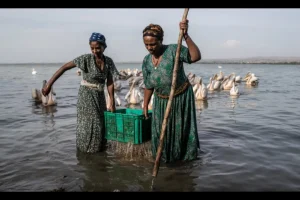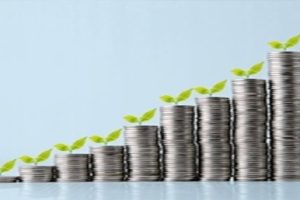
BY MENGESHA AMARE
Cognizant of the fact that human race can rescue and/or destroy the planet earth, a range of activities have been running in such a way that can robust the former in present day sphere. The lifestyle choices of individuals and communities can have an immense consequence on biodiversity and the milieu.
It is recurrently heralded that the term biodiversity entails the variety of life on Earth at all its levels, from genes to ecosystems, and can encompass the evolutionary, ecological, and cultural processes that sustain life.
Having this concept in mind, The Ethiopian Herald approached Demeke Baye, a biologist graduated from Addis Ababa University and working for a research center advocating the proliferation of fauna and flora, and biodiversity.
He said, “Not only does biodiversity include all species we consider rare, threatened, or endangered but it also incorporates every living thing—from humans to organisms we know little about, such as microbes, fungi, and invertebrates. It refers to the diversity among all organisms, including terrestrial, marine, and other aquatic ecosystems, and the ecological complexes of which they are composed and gargantuan ecosystem diversity. Sustained economic growth drives industrial expansion and accelerates communication and trade, which leads to the excessive consumption of materials and energy.”
There are crucial values including myriads of basic needs humans obtain from biodiversity such as food, fuel, shelter and medicine. Furthermore, ecosystems provide crucial services such as seed dispersal, climate regulation, water purification, nutrient cycling, and control of agricultural pests. Biodiversity also holds value for potential benefits not yet recognized, such as new medicines and other possible unknown services. It has also cultural value to humans as well, for spiritual or religious reasons for instance, he added.
However, as to him, land misuse, such as agricultural expansion, and urban and infrastructure development, can encroach and fragment habitats of organisms thereby causing biodiversity loss. Likewise, intensification of agricultural techniques can reduce soil organic matter, disturb soil biomes, increase the risk of soil erosion, degradation, and salinization, lead to bio-homogenization, and be toxic to plants as well as threaten birds, mammals, amphibians, and insects.
Besides, climate change has increased the frequency and intensity of extreme events, such as droughts, floods, storms, etc. These kinds of extreme events pose a greater threat to biodiversity than global warming he said adding that all these pitfalls in due course of nurturing biodiversity have to be prettily dealt with.
He further said that biodiversity is of paramount importance in contributing to human welfare and it has become a key weapon for maintaining and enhancing ecosystems. Crop biodiversity is thus the foundation of food production and supply. Farmers and breeders use biodiversity to adapt crops to different and changing production environments.”
According to Demeke, upholding diverse plant varieties on the fields of the farming community is increasingly regarded as an effective way of conservation of plant genetic resources. As to him, growing multiple species makes possible the productive exploitation of synergies among crops and niche partitioning, and it is evident that crop biodiversity is very important for both the functioning of ecological systems and the generation of ecosystems services.
He said, “Agriculture is unequivocally the mainstay of the Ethiopian economy as it has accounted for a considerable hare of national GDP, exports, employment. However, it is largely of low external-input nature i.e. low fertilizer, improved seeds and irrigation inputs. A considerable proportion of seed inputs are derived from local planting materials and the country’s seed resources are critical to the performance of agriculture.”
He said the most important thing here is identifying the relation between crop biodiversity to agro-ecosystem functioning and productivity is quite important. He said economic growth will inevitably require the sacrifice of some natural resources and the drastic decline in biodiversity will threaten the survival and development of human beings, destroy the future source of food and medicine for human beings, and even affect the ecological balance of the whole of nature.
Governments as well as scientists these days are actively looking for ways to conserve biodiversity and transform it while trying to find out how economic growth affects it. Although the specific impacts of economic growth on biodiversity have been widely discussed, a balanced relationship between economic growth and biodiversity has yet to be constructed, he added.
This shows that he uttered when economic development reaches a certain level, countries will naturally return to attach importance to biodiversity conservation and environmental issues and balance the relationship between ecology and economic development. He further elucidated that the conservation efforts of the last decades have made a significant difference in the state of biodiversity today, and this remarkable stride needs to be well fused.
Under current conditions, the green economy concept has received a comprehensive response in achieving the sustainable development. However, measuring green economic development progress is dynamic. The difficulty lies in a comprehensive environmental sustainability assessment in the context of ecological, social, and economic factors, he opined. Conventional economic development can be viewed as unavoidable consequences of economic growth as the slowdown of economic growth has effects on the well-being of the population, he added.
According to Demeke, in the green economy, growth in income and employment should be driven by public and private investments that reduce carbon emissions and pollution, enhance energy and resource efficiency, and prevent the loss of biodiversity and ecosystem services that result in improved human well-being and social equity, while significantly reducing environmental risks and ecological scarcities.
Besides, he added, as the green economy is continually being made and remade, its shape and contours are contingent upon and open to transformation, and countries choose its strategy for achieving a green economy that promotes economic growth, considering climate change problems since green economy and green jobs will be key for economic recovery while simultaneously battling climate change and driving job growth.
It is also important to note that increasing levels of greenhouse gases in the atmosphere due to human activities are major drivers of climate change. Yes, protecting and restoring ecosystems and managing land sustainably can reduce greenhouse gas emissions.
According to Demeke, investments are one of the most important factors determining economic development and significantly impacting environmental situations. Hence, he added, organizations and enterprises are expected to invest in environmental protection with a view to coming up with rewarding economic growth.
“The growth of the environmental efficiency has indicated that there is a trend toward a green economy transition, that is, environmental restrictions imposed on the production and economic activities of industrial, agricultural, and other enterprises of the country,” he remarked.
Generally, biodiversity is important to almost all aspects of living things. It is highly valued for many reasons, for instance the value with which it has provided humans, fauna and flora as well as all corporeal physiques and for the value it has in its own right. The good thing along this line is that it is within human reach and power to change all sorts of actions to help ensure the survival of species and the health and integrity of ecological systems. By thoughtfully taking all these threats to biodiversity into account, and how they play out in context, human race in the universe can be best prepared to manage conservation challenges as these steps help bring about economic progress and dramatic life change apart from creating green planet.
The Ethiopian Herald March 16/2023




